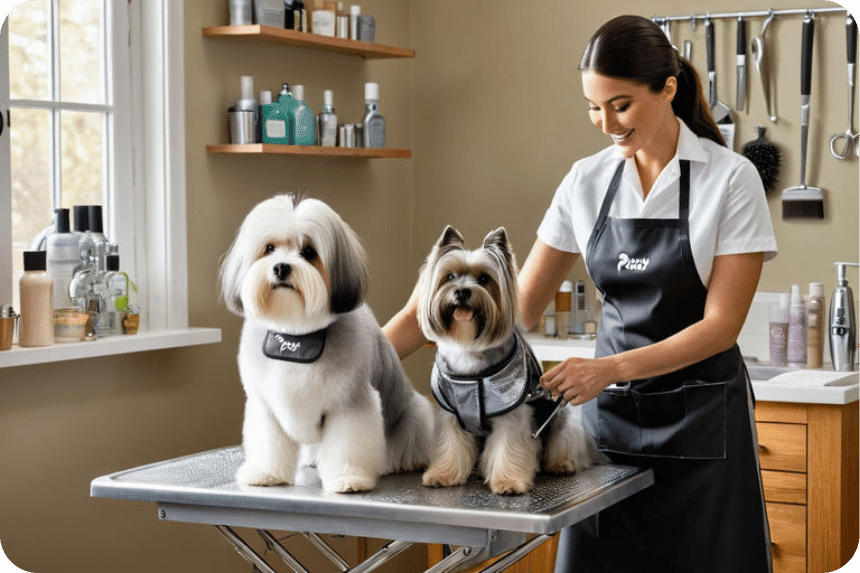Pet Grooming: Tips for Keeping Your Furry Friend Clean and Healthy
Pet Grooming: Tips for Keeping Your Furry Friend Clean and Healthy
Pet grooming is not just about making your pet look good; it's an essential aspect of their overall health and well-being. Regular grooming helps prevent matting, reduces shedding, and allows you to check for any signs of skin issues or parasites. Whether you have a dog, cat, bird, or other furry friend, proper grooming is key to keeping them happy and healthy.
Why is Pet Grooming Important?
Grooming goes beyond just maintaining your pet's appearance; it plays a crucial role in their physical and mental health. Here's why grooming is essential for pets:
1. Coat Health:
- Regular brushing removes dirt, debris, and loose hair from your pet's coat, preventing matting and tangles.
- Brushing also helps distribute natural oils throughout the coat, keeping it healthy and shiny.
2. Skin Care:
- Grooming allows you to inspect your pet's skin for any signs of irritation, rashes, or parasites like fleas and ticks.
- Bathing with pet-safe shampoo helps remove allergens and keeps the skin clean, reducing the risk of infections.
3. Bonding Time:
- Grooming provides an opportunity for bonding between you and your pet. It's a chance to show them love and affection while also meeting their grooming needs.
4. Overall Well-being:
- Regular grooming promotes relaxation and reduces stress in pets. It can also help detect health issues early on, allowing for prompt treatment.
Basic Pet Grooming Tips
1. Brushing:
- Dogs: Brush your dog's coat regularly, especially if they have long or thick fur. Use a brush suitable for their coat type to remove tangles and mats.
- Cats: Cats benefit from regular brushing to reduce shedding and prevent hairballs. Start with a soft brush and gradually introduce grooming tools to your cat.
2. Bathing:
- Use a mild, pet-safe shampoo and lukewarm water to bathe your pet. Avoid getting water in their ears and eyes, and rinse thoroughly to remove all traces of shampoo.
- Bathe your pet only when necessary, as excessive bathing can strip their skin of natural oils and lead to dryness.
3. Nail Trimming:
- Trim your pet's nails regularly to prevent overgrowth and discomfort. Use pet-specific nail clippers and avoid cutting the quick, which contains blood vessels and nerves.
- If you're unsure how to trim your pet's nails, ask your veterinarian or a professional groomer for guidance.
4. Ear Cleaning:
- Check your pet's ears regularly for signs of redness, odor, or discharge. Clean their ears gently using a vet-approved ear cleaner and cotton balls or pads.
- Avoid inserting anything into your pet's ear canal, as this can cause injury or infection.
5. Dental Care:
- Dental hygiene is essential for pets to prevent dental disease and bad breath. Brush your pet's teeth regularly using a pet-specific toothbrush and toothpaste.
- Provide dental treats and toys designed to promote oral health, and schedule regular dental check-ups with your veterinarian.
6. Professional Grooming:
- Consider taking your pet to a professional groomer for services like haircuts, de-matting, and anal gland expression.
- Professional groomers have the experience and expertise to handle grooming tasks safely and efficiently, especially for pets with specific grooming needs.
Conclusion
Pet grooming is an essential part of responsible pet ownership. By incorporating regular grooming into your pet care routine, you not only keep your furry friend looking their best but also contribute to their overall health and happiness.
How often should I groom my pet?
- The frequency of grooming depends on your pet's breed, coat type, and lifestyle. Generally, most pets benefit from grooming at least once a week.
My pet dislikes grooming. What can I do to make it more enjoyable for them?
- Start grooming sessions gradually and use positive reinforcement techniques like treats and praise. Make grooming a positive experience by associating it with rewards and affection.
Can I use human shampoo on my pet?
- No, human shampoo is formulated for human skin and can be too harsh for pets. Use a pet-specific shampoo that's gentle and safe for their skin and coat.
Should I groom my pet at home or take them to a professional groomer?
- It depends on your pet's grooming needs and your comfort level with grooming tasks. While basic grooming can be done at home, professional groomers can provide specialized services and expertise for certain tasks.
What should I do if I encounter any skin issues or parasites during grooming?
- Contact your veterinarian for guidance and treatment recommendations. They can diagnose and address any underlying health issues affecting your pet's skin and coat.
